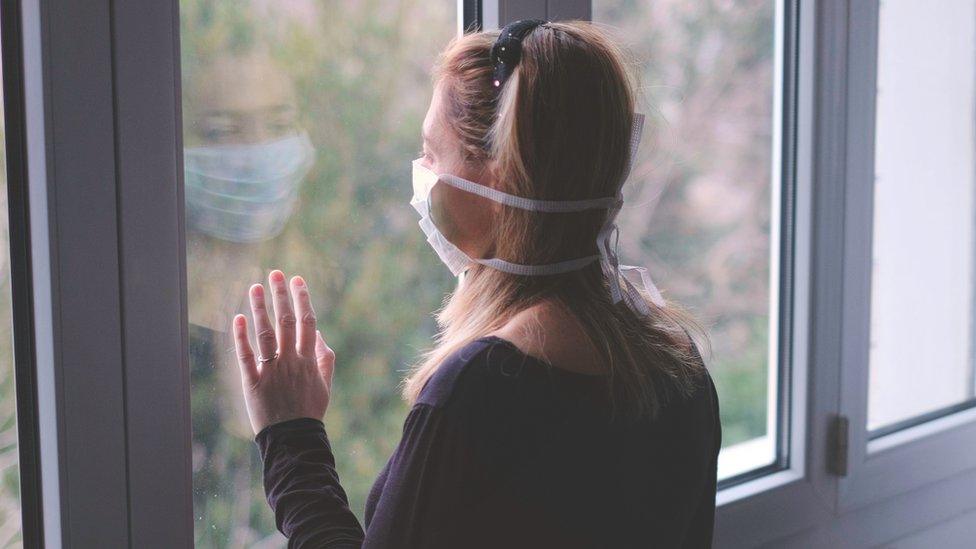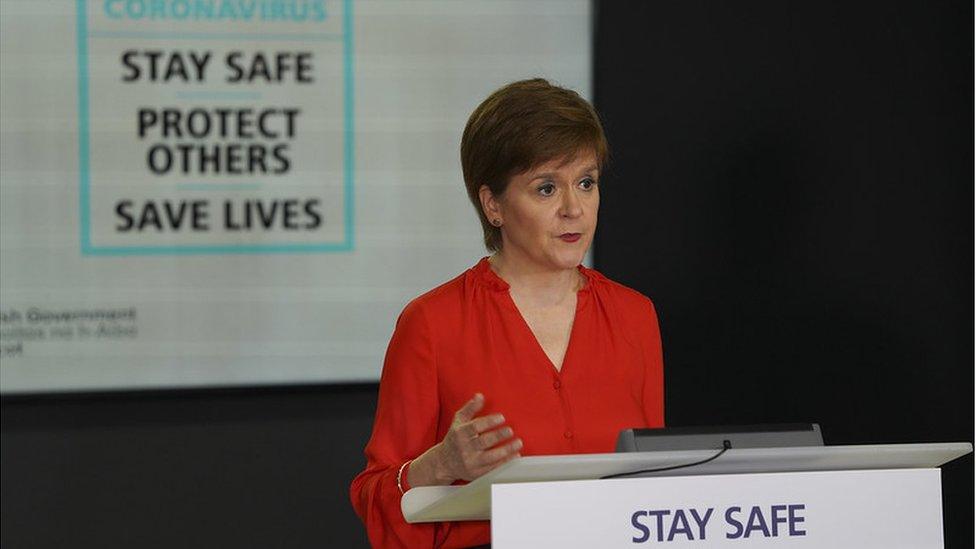Coronavirus: Restrictions to be eased for shielding Scots
- Published

People who are "shielding" in Scotland are to be allowed to stay in holiday accommodation and visit outdoor markets and gardens, in a change to advice.
Nicola Sturgeon said virus restrictions for the most vulnerable group are to be eased from Friday.
This will allow these people to go out more, and for couples who do not live together to meet up without distancing.
And the first minister said it was hoped the need for shielding could be paused entirely at the end of July.
There are about 180,000 people shielding in Scotland.
The shielding group includes those who are at the greatest risk of becoming seriously ill with coronavirus.
People who have certain types of cancer or severe respiratory conditions, and those who have received solid organ transplants come into the category.
The restrictions on this group are gradually being phased out, and they were allowed to cease physical distancing with people they live with last week.

Nicola Sturgeon said the change would be welcome, but could also be "quite daunting" for some
The latest move - to take effect on Friday - will see advice changed to say the shielded can stay at holiday accommodation, including hotels.
They will also be able to visit outdoor markets and public gardens, and couples who do not live together will be allowed to meet up without maintaining a physical distance.
Ms Sturgeon said she hoped to be able to pause the need for shielding entirely at the end of July, but said "we would still encourage those in this group to take extra care".
She added; "I know returning to something like normal life will be welcome, but I appreciate it is also known to be quite daunting.
"The Scottish government will provide more information nearer the time and will do everything we can to support you in this transition."
The first minister said people who are not shielding should think about how they can help, giving the example of wearing face coverings in shops and on public transport.
And she said employers should consider how they can make workplaces as safe as possible for those in the shielding group.
She said: "This is good news, but will be prompting some understandable stress and anxiety - so all of us can take some small steps that might make some difference to people who are shielding."

THE R NUMBER: What it means and why it matters
LOOK-UP TOOL: How many cases in your area?
